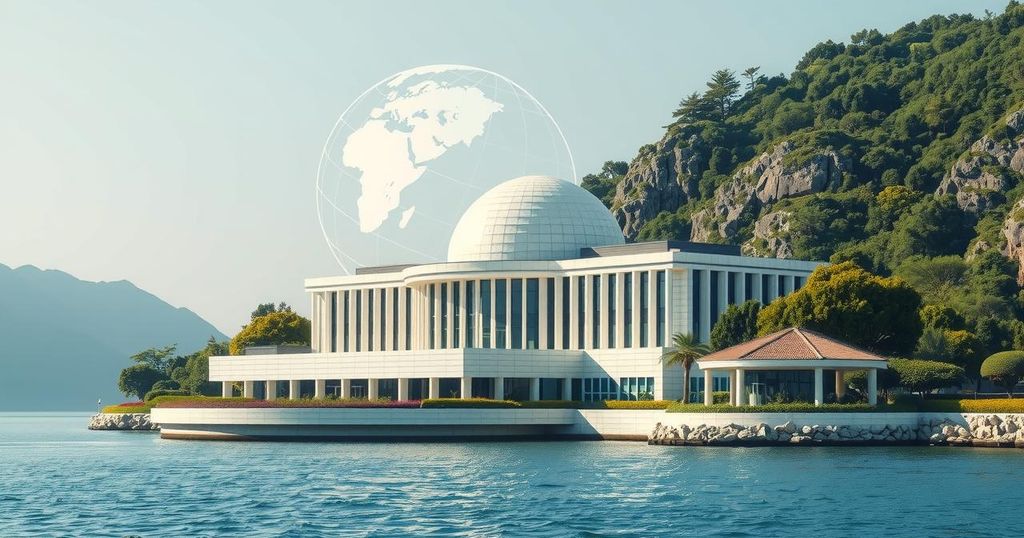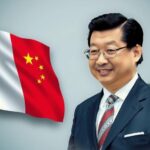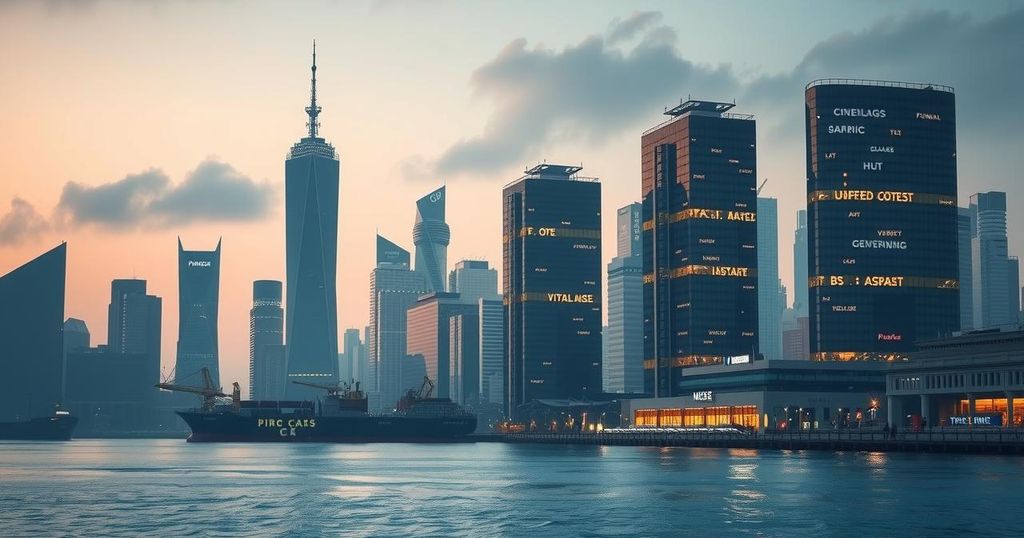Politics
ASIA, CHINA, CK HUTCHISON HOLDINGS, DONALD TRUMP, FOREIGN POLICY, HUTCHINSON PORTS, INTERNATIONAL RELATIONS, JAVIER MARTINEZ - ACHA, MARCO RUBIO, MEXICO, MU, MULINO, NATIONAL SECURITY, NORTH AMERICA, PANAMA, PANAMA CANAL, PANAMA PORT, PANAMA PORTS, SOUTH CHINA SEA DISPUTE, US, US STATE DEPARTMENT
Clara Montgomery
Panama’s President Reaffirms Sovereignty, Ends Belt and Road Deal with China
Panama’s President Raúl Mulino announced the cessation of a Belt and Road deal with China to affirm sovereignty over the Panama Canal. During talks with U.S. Secretary of State Marco Rubio, he addressed U.S. concerns about Chinese influence, expressing a desire to enhance U.S. investments in Panama. Mulino also discussed the audit of a company linked to China and the potential expansion of a repatriation program for undocumented migrants at U.S. expense.
In a recent statement, Panama’s President Raúl Mulino confirmed that Panama would not extend its participation in China’s Belt and Road Initiative, initiated in 2017. During discussions with U.S. Secretary of State Marco Rubio, Mulino assured that Panama’s sovereignty over the Panama Canal is non-negotiable amid U.S. concerns regarding Chinese influence in the region. He emphasized the intention to collaborate with the United States on new investments, particularly in infrastructure projects.
After a meeting, the U.S. State Department expressed concerns about China’s potential control over the canal, suggesting that the U.S. may need to take protective measures under existing treaties. The 1977 treaty mandates that the canal maintain its neutral status while permitting U.S. intervention in case of disruptions caused by internal or external conflicts. The canal is witnessing increased cargo traffic compared to its operational peak during U.S. control.
President Mulino indicated skepticism that the U.S. would resort to military action to reclaim control of the canal. He noted that Panamanian authorities are conducting an audit of the Panama Ports Company, linked to Chinese interests, but reiterated that this audit must reach completion before any action is taken. The company, part of CK Hutchison Holdings, does not control canal access but operates nearby ports.
Further discussions between Mulino and Rubio extended to expanding a program for the repatriation of undocumented migrants, asserting that the U.S. would bear the associated costs. This initiative aims to address irregular migration through the perilous Darien Gap, a critical transit zone for migrants traveling from South to Central America towards the United States and Canada. Mulino confirmed that this could involve repatriating migrants from countries such as Venezuela and Colombia.
The Panama Canal is a significant global trade route, originally controlled by the United States until its sovereignty was transferred to Panama under a treaty signed in 1977. The canal’s neutrality and its operations are protected by this treaty, which allows U.S intervention under specific conditions. In recent years, concerns have arisen regarding the increasing presence of China in Latin America and its implications for Panama’s control of the canal, particularly through initiatives like the Belt and Road Initiative. This initiative fosters investments in infrastructure but raises alarms about foreign influence in strategically important regions. The governance of the Panama Canal is crucial, given its economic impact and geopolitical significance. The increasing cargo traffic suggests its growing importance as a shipping route. Recent diplomatic talks reflect the ongoing tension between maintaining Panamanian sovereignty and U.S interests in countering foreign control over the canal, notably from China.
President Raúl Mulino’s announcement to cease Panama’s participation in the Belt and Road Initiative underscores Panama’s commitment to maintaining its sovereignty, especially regarding the Panama Canal. Discussions with U.S. Secretary of State Marco Rubio highlighted concerns about Chinese influence while reinforcing a desire for closer U.S.-Panama relations focused on investment and migration issues. Authorities are also auditing Chinese-linked enterprises operating near the canal, demonstrating a cautious approach to international partnerships.
Original Source: www.abcactionnews.com








Post Comment